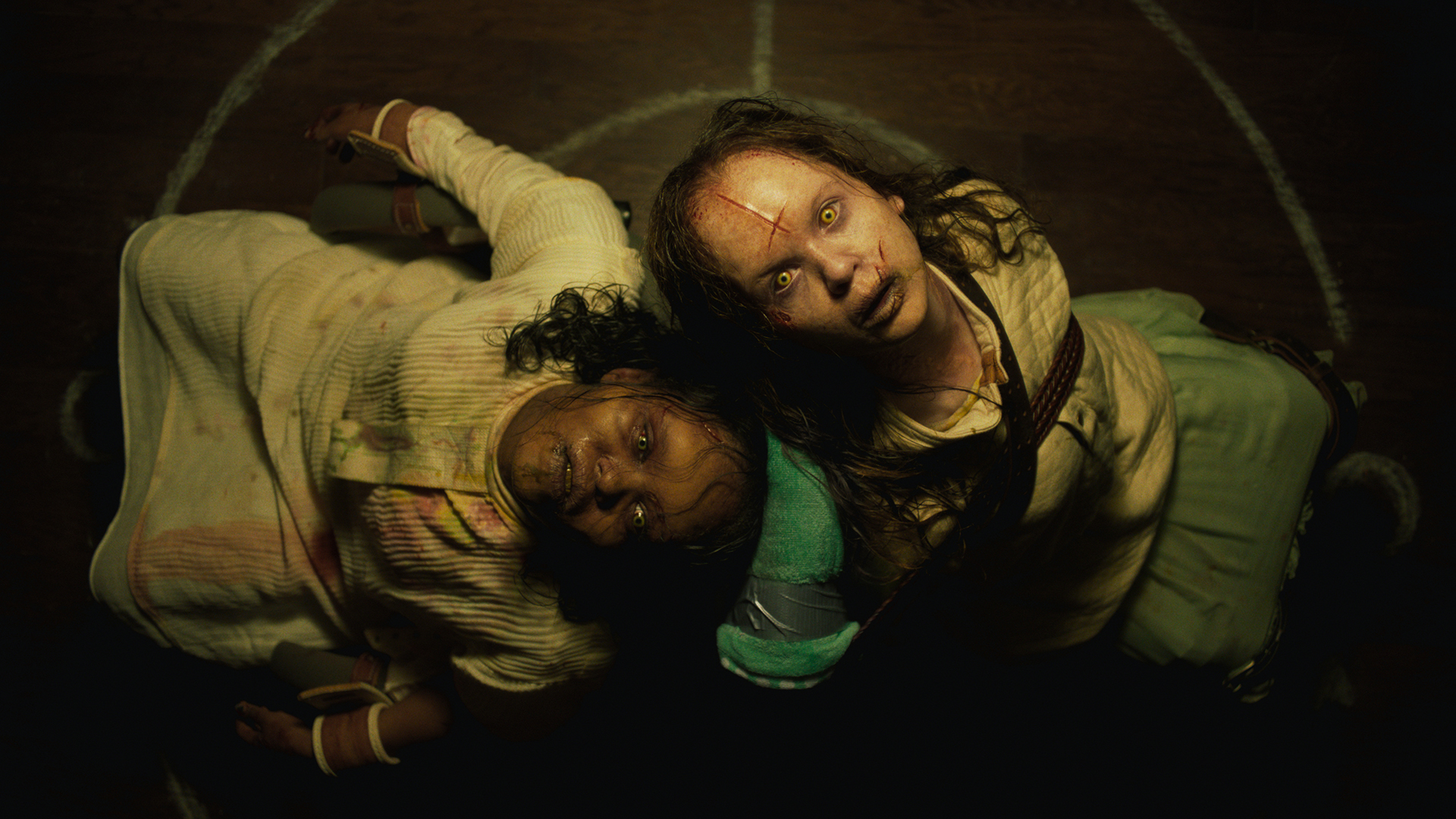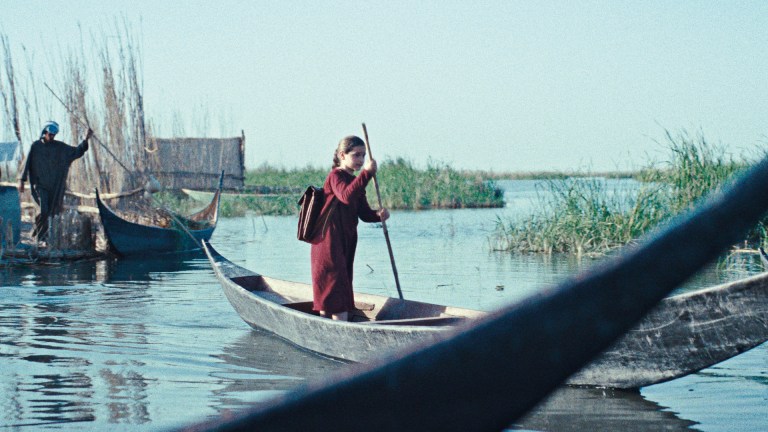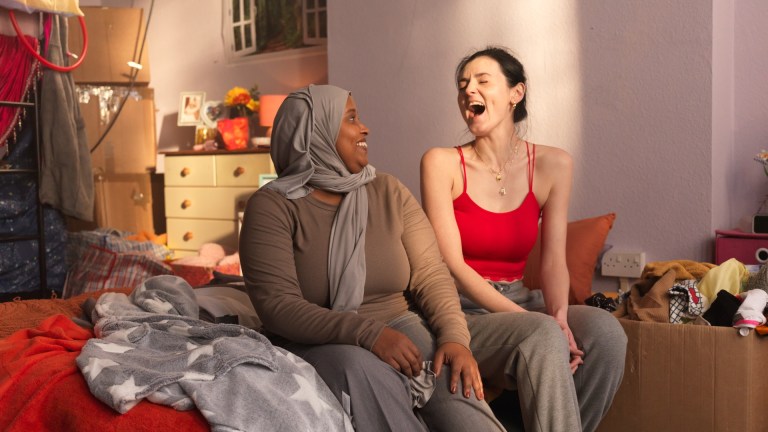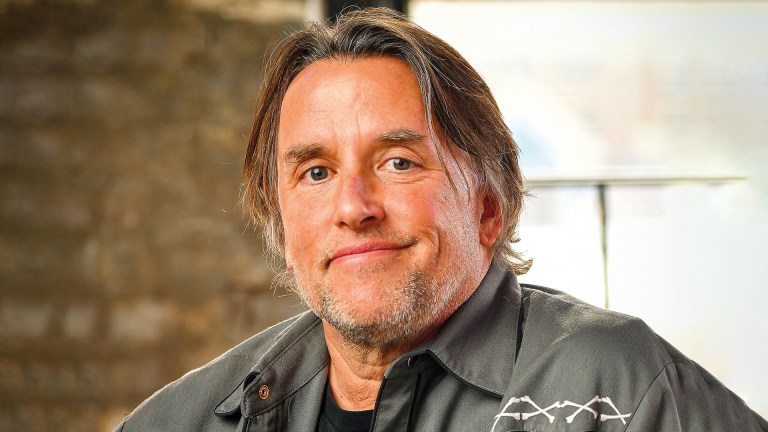Big studio horror films are always going to err on the easy-to-digest, non-radical side. They are made by conservative corporations that don’t want to upset their Christian customers. Thankfully, other 2023 scary movies show more interest in undermining conservatism’s home in the genre.
M Night Shyamalan’s Knock at the Cabin and Lee Cronin’s Evil Dead Rise subject their characters to violence that may not be spelled out as political, but provoke questions about conservatism’s place in horror. The genre has always been political: an aggressor targeting a vulnerable victim is the archetypal power dynamic.
There’s a weird tension in classic slashers – since they clearly delight in butchering troublesome characters (often promiscuous women or minorities), do they embolden the moralistic messages of conservative society? Or is the veiled brutality in mainstream conservative beliefs being externalised through a monster?
Modern horror is eager to take what used to be subtextual and bring it to the foreground. There is something compelling and unnerving about the horror of the real world finding a home in heightened, fantastical stories.
In Knock at the Cabin, religious fanatics take over the quiet holiday of two gay men and their daughter, announcing that visions have told them that unless one of the family is sacrificed, God will cause a world-ending apocalypse. The film received criticism for the suffering its queer characters go through. But Shyamalan, as a person of colour, understands the testing nature of assimilating into a world that says your othered status will only be “accepted” (read: not ostracised or attacked) if you’re willing to sacrifice some of your values and happiness.
It leaves a sick feeling in your stomach – even after the family do the unthinkable, they do not feel suddenly welcomed; when the radio plays a song they sang along to in the opening scene, it’s clear God is playing a sick joke.
Reboot Evil Dead Rise comments on the implicit bigotry of the 1981 original, giving an intentional update to messaging that Sam Raimi and co. never fully considered as young exploitation filmmakers. The Evil Dead is loaded with gendered violence – after a young woman is sexually assaulted by demonic tree roots, her possession spreads to all the other women present, turning them into cackling crones who can only be dispatched with complete dismemberment. Women are violated, and for their transgression are punished by being brutalised.
In Rise, it’s a single mother who becomes possessed; Ellie is an encouraging anchor for her trans son Danny and anarchist daughter Bridget. She is a model of acceptance, and when she taunts and attacks her children, their politicised statuses feel targeted too. If the demon in the original was misogynistic, it is now homophobic, taking advantage of humanity’s darkest impulses to attack beliefs and identities that are seen by the right as abnormal.
Horror will always on some level be about conservatism, because violence doesn’t happen in a political vacuum. It’s up to filmmakers to interrogate how it influences society. Horror movies may not be getting more conservative, but the ones with the biggest reach are content to let its domineering influence fester for another generation.
Rory Doherty is a freelance screenwriter.
This article is taken from The Big Issue magazine, which exists to give homeless, long-term unemployed and marginalised people the opportunity to earn an income. To support our work buy a copy!
If you cannot reach your local vendor, you can still click HERE to subscribe to The Big Issue or give a gift subscription. You can also purchase one-off issues from The Big Issue Shop or The Big Issue app, available now from the App Store or Google Play









